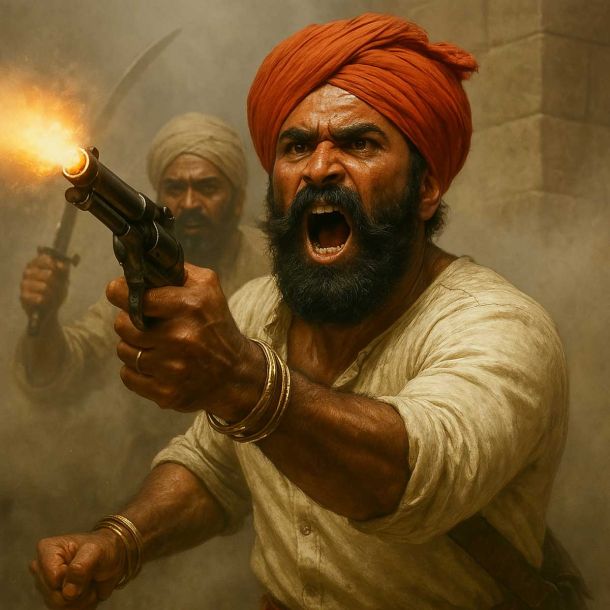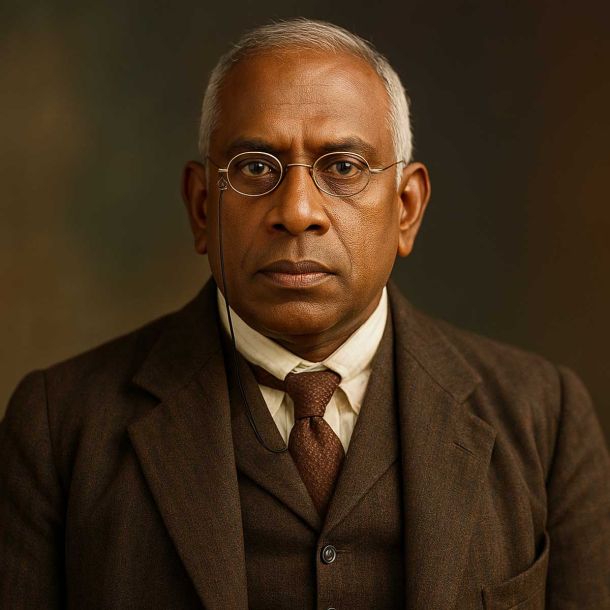MORE COVERAGE
In Search of a Culprit - Genesis and Growth of Nehruism Vol 1
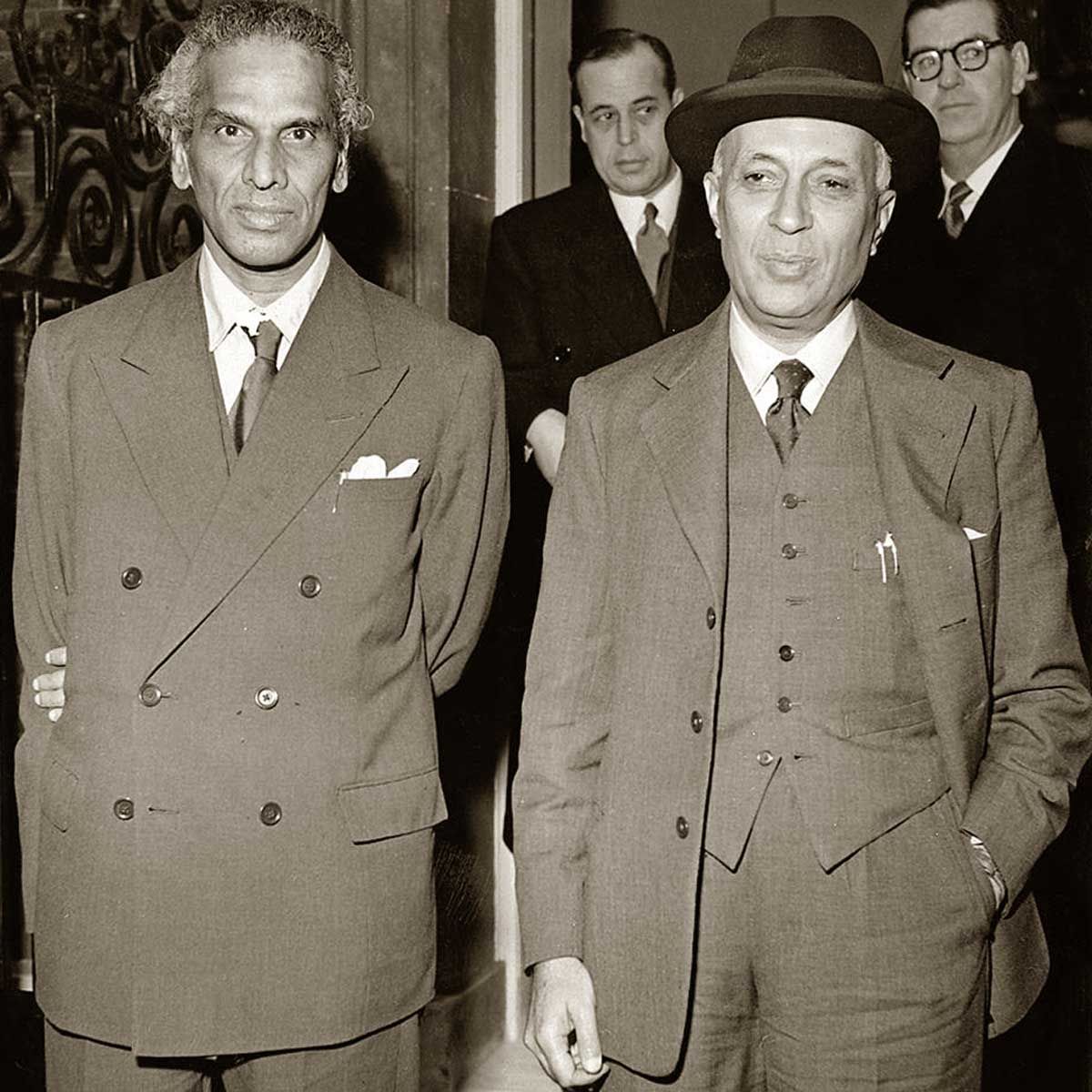
The communist and fellow-travelling press and platforms in this country are busy building up and defending India's Defence Minister, Mr. VK Krishna Menon, in the face of what the leftists describe as "an upsurge of rightist reaction". Krishna Menon himself struts about with an air of injured innocence, and frequently dons the mask of a much misunderstood martyr whose services to the nation have not been properly appreciated.
But the nation at large is not convinced. It is not only the politically conscious intelligentsia, concentrated in our patriotic parties, that suspects Krishna Menon as a sinister influence in our public life. Even the man in the street feels that there is something spurious about his masquerade as a servant of the nation. There is a widespread belief that he is the real author of that disaster which has recently overtaken India's Panchashila policy vis-a-vis communist China.1
A belief is abroad that if Krishna Menon is not immediately removed from his position of influence on the Government of India and the armed services, many more disasters of greater magnitude will follow in each other's trail.2 And there has been a persistent demand in the popular press, by the patriotic parties of the opposition, and among an overwhelming majority of Congressmen that he should be sacked.
At the back of this continued clamour against Krishna Menon, there is a generally accepted assumption that, left to himself, Prime Minister Nehru is a clean and honest patriot who will do the right thing at the right time and in the right place. Krishna Menon has, therefore, become the central target of attack. All sorts of stories are current as to how he is trying to undermine the morale of the defence services, how he is leaking top secrets to the Russian and Chinese communists, and what decisive role he is playing in leaving our northern frontiers unguarded.
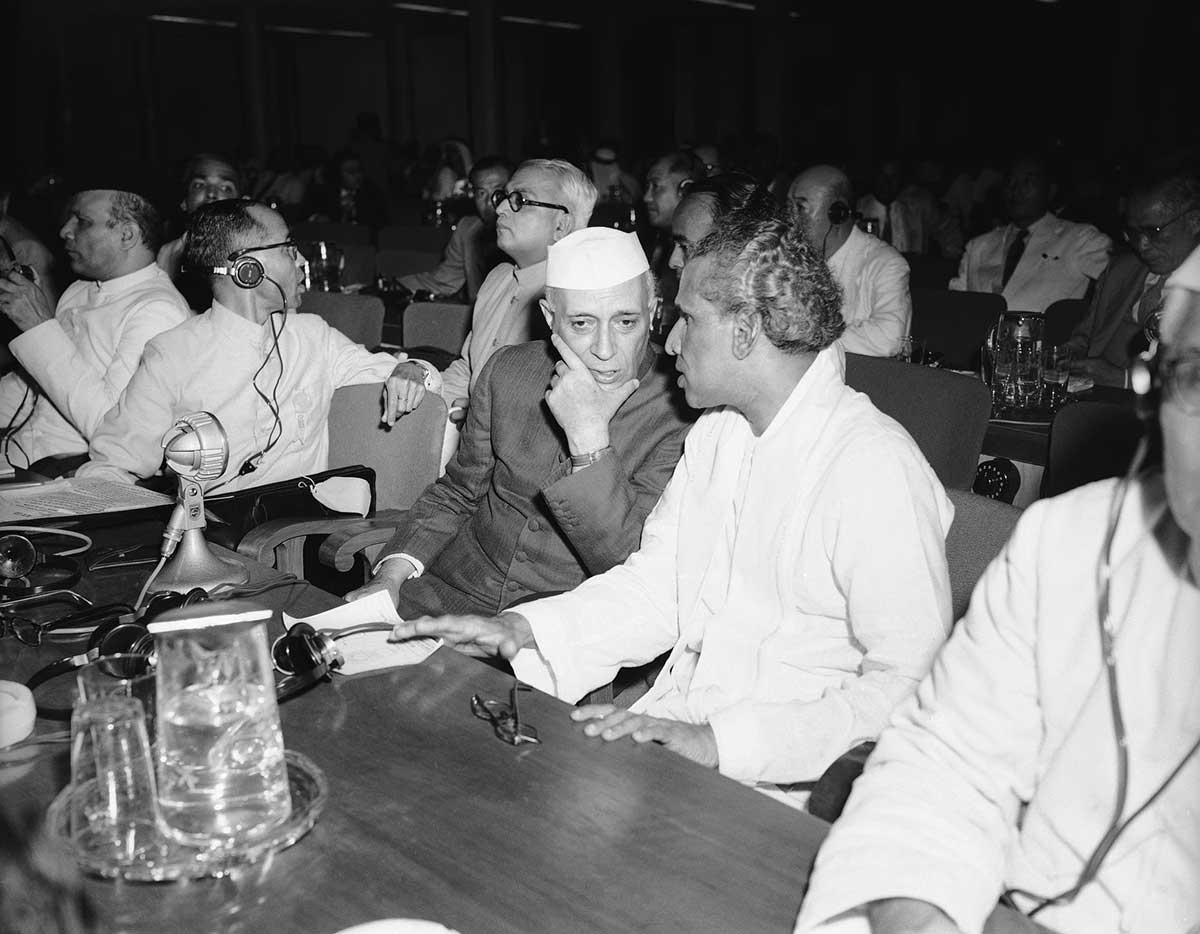 India's UN Delegate Krishna Menon Urges Collective Peace |
But no one has as yet bothered to contemplate the two important implications which follow from this generally accepted assumption about Pandit Nehru. The first implication is that he is a half-wit who readily and repeatedly surrenders his own judgement to the evil counsels of a scheming scoundrel. According to the second implication, although he knows what his Defence Minister is doing, he is too powerless to get rid of the man.
None of these implications squares with known facts. It is, therefore, legitimate to doubt the basic assumption that Pandit Nehru is not the guilty party. It is, therefore, wrong to reserve all our brickbats for Krishna Menon and all our bouquets for Pandit Nehru. If something is seriously wrong somewhere, Pandit Nehru and not Krishna Menon is the real author of it. We are in search of a culprit, we should get at Pandit Nehru and not at Krishna Menon.
For, even the worst critic of Pandit Nehru cannot call him a half-wit. He has proved himself to be easily the most astute politician among a legion of leaders left to this country during thirty long years of Mahatma Gandhi's stewardship. He has tamed, or beaten, or driven into wilderness not only the so-called "mature and hardheaded men" of the Congress Right but also the "fire-eating rabble-rousers" of the Congress Left. He has reduced the mighty Congress Party to his private harem in a matter of less than ten years. The other top Congress leaders may still continue to intrigue against each other for the Grand Moghul's favours, but all of them put together are too weak and demoralised to challenge his authority.
Nor is Pandit Nehru, by any stretch of imagination, a powerless man vis-a-vis Krishna Menon. It is only his personal favour that has catapulted Krishna Menon into such and important position in so short a time. Krishna Menon was nobody in the national struggle for freedom, and as such has never wielded any entrenched influence or personal following in the Congress Party. Nor is he distinguished for any extraordinary talent such as can hold its own in the political or administrative set-up of the country after independence. Left to himself, he would have been a garrulous non-entity with whom no one would have willingly shared a table in the coffee house. Even today, after all these years of power and publicity, he can be dropped at will by Pandit Nehru without so much as arousing even a stray dog to bark in protest. If anything, the whole country will heave a sigh of relief and rejoice over the event.3
The simple and stark truth is that Pandit Nehru is wilfully sticking to Krishna Menon in the face of an overwhelming national demand for latter's immediate dismissal. Not only that. Pandit Nehru has been going out of his way to defend his Defence Minister, in season and out of season, inside and outside the Parliament.
What is the explanation? Why has Pandit Nehru shown such extraordinary fondness for Krishna Menon? Why did he ignore the advice of such devoted friends as the late Rafi Ahmed Kidwai and Maulana Azad against what they regarded as the evil influence of Krishna Menon? Why did he estrange his relations with his devoted sister and life-long follower, Vijayalakshmi Pandit, on account of Krishna Menon? Why did he come down on his beloved daughter simply because Krishna Menon disapproved of her stand against the communist Government in Kerala? These are some of the questions that must be answered.
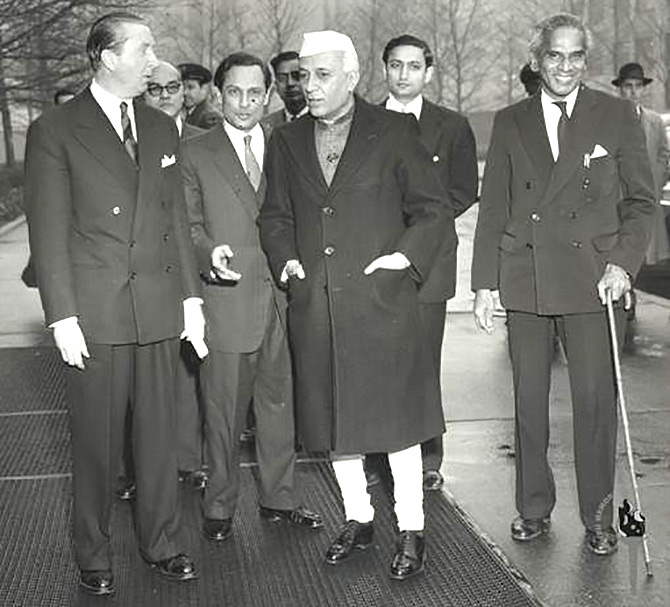 V K Krishna Menon was India's defence minister when China went to war with this country in October 1962 |
Some people take resort to depth psychology whenever they are faced with such questions. They say that Pandit Nehru is a man of honour who believes in standing by an old friend against the insinuations of the latter's political rivals and personal enemies. But his life-story as a whole leaves no doubt that he has never bothered about such "sentimental nonsense" as a sense of honour. He has made friends and deserted them in their hour of need with the casualness of a hardened street harlot.
Some others say that Pandit Nehru is under a debt of gratitude for the various jobs of publicity which Krishna Menon did for him at a time when he was not so important in terms of international stature. But, again, Pandit Nehru's life-story reveals that whatever other virtues the man may possess, at least gratitude has never been his strong point. He has often kicked the ladder that lifted him up and bitten the hand that fed him.
The history of various missionary movements as well as the known examples of great personal friendships go to prove that the strongest bond between human beings is forged by a meeting of minds, by common convictions, by sharing together of a common ideology. Normal human bonds are likely to disintegrate when subjected to controversy. But the bonds created by common convictions grow stronger with every additional strain.
We should, therefore, seek an explanation of Nehru-Menon comradeship at the level of convictions. That is the one point where we are most likely to strike at the truth. We should make a serious attempt at digging out the basic beliefs of Pandit Nehru from under a mass of verbiage that has been his stock-in-trade whenever he is acting on the public stage. If the two persons are found to be holding certain common convictions, the problem of Nehru-Menon relationship stands solved in a simple and straightforward manner. But if there is a divergence between the two at that level, the Nehru-Menon relationship must remain a mystery for all time to come.
Now, what does Krishna Menon stand for? The task of pinpointing him is somewhat difficult because the man has so far abstained from writing a book that sets out his beliefs in an unmistakable manner. He has also refused to give a straight answer when asked if he is a communist. He has always shouted a counter-question: Are you a fascist? But those who have known him during his long sojourn in London have absolutely no doubt that the man is a convinced communist. The Labour Government in Britain was considerably perturbed when it became known to it that Pandit Nehru was adamant on appointing Krishna Menon as India's High Commissioner in London.
Mr. Philip Spratt who came to India in 1926 as a top Comintern Agent, who was the first architect of the Communist Party of India, who was tried as the chief accused in the Meerut Conspiracy Case, and who later on turned against Communism, says: "For nearly twenty of his years in London, he was known as a close supporter of the communists. People change their minds, but Mr. Menon's recent speeches do not suggest that he has changed his. I should guess that be is one of that considerable band of people in important positions in the free world who, though not technically party members, are in fact disciplined communists. Even if this is disputed, it will be agreed that there is something anomalous in a convinced partisan of the aggressor masquerading as a neutral mediator, and contriving so regularly to serve the aggressor's purposes. I hope people will not think I am suffering from a conspiracy mania; after all, Communism is a conspiracy."4
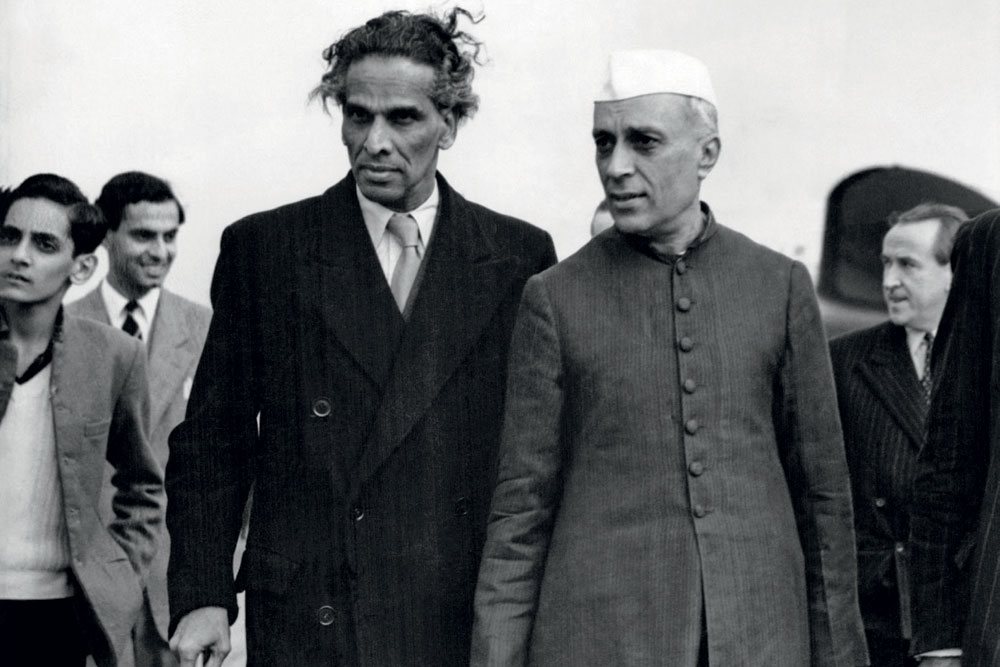 Jawaharlal Nehru and Krishna Menon, London, 1949 |
The public image of Krishna Menon in India also squares with Mr. Spratt's estimate of him. He has always received unmitigated support from the Communist Party of India. The group that cherishes him inside the Congress Party is the so-called Ginger Group which consists of communists and crypto-communists. The papers with which, he is associated in India, namely R.K. Karanjia's Blitz and the newly brought out weekly Link, are without a doubt mouthpieces of Communism.5 We can, therefore, take it as a settled fact that the man is a communist. That is what the common man in India, his admirer as well as his opponent, believes about him.
At this stage, a clarification about the definition of a communist may be helpful. Ever since the days of Senator MacCarthy, most people feel a distrust towards those who spot a communist without a party card. According to a widely accepted but essentially American definition, a communist is he who either publicly displays his party membership or whom the secret police can locate in the party apparatus by means of a standard system of check-up. No one else should be labelled a communist, particularly if he or she is not an ill-fed, ill-clad, illiterate, oppressed, and exploited poor person. Persons in power in a non-communist country are not supposed to be communists.
The Soviet Union, however, happens to have a different definition. According to this definition, the party members and the men of the apparatus are, of course, communists. But there are many others, more numerous than the party members and apparatus men, who believe in Communism and who regard the Soviet Union as an ideal country where all the miracles have already happened. For the Soviet Union, all these people are communists, to be cherished, encouraged, assisted, and anointed as "progressive people struggling for a better world". The Soviet scriptures pose only one question before every person: Are you for or against the Soviet Union?
Those who have doubts on this score may read one little pamphlet, Patriotism and Internationalism, by the Russian writer S. Titasenko, available for one anna from any communist bookstall. It says: "Love of country, native land, we call patriotism. But not every one speaks of the concept of patriotism in the same way. In our times only the Communist and Workers' Parties, adhering to the platform of Marxism-Leninism, cherish and give expression to patriotic ideas. A patriot is one who exposes the aggressive plans of the Anglo-American imperialists and their accomplices. Proletarian internationalism not only does not deny patriotism but, on the contrary, is indissolubly connected with it. An internationalist is one who always and under all circumstances subordinates the national interests to the interests of the struggle for victory of the working class over the bourgeoisie. Internationalism places above everything else the interests of international proletarian solidarity. The Communist and Workers' Parties regard the fostering of love for the USSR-the fatherland of the working people - as one of their cardinal tasks. Devotion to the Soviet Union, the true Place of socialism, a determined struggle against any anti-Soviet machinations by the enemies of the working class is the touchstone, the criterion of true proletarian internationalism."
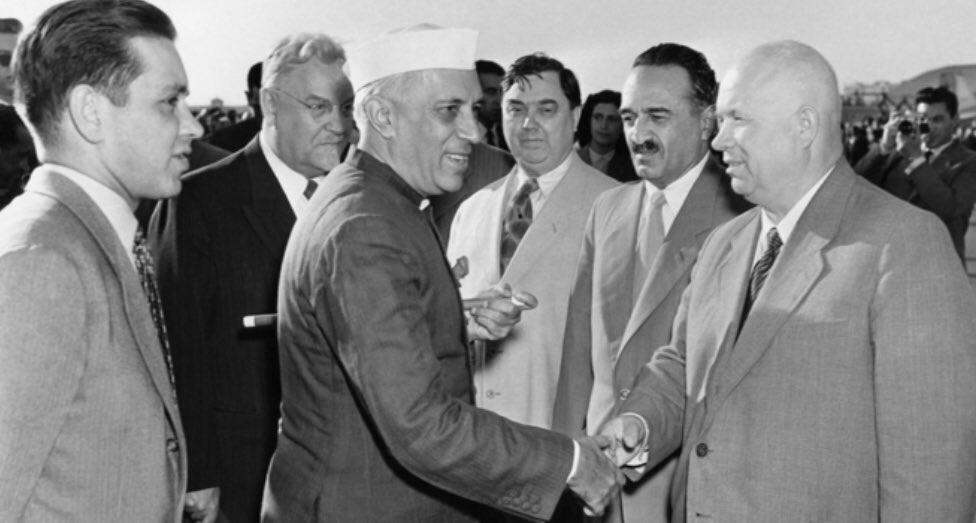 Establishment of diplomatic relations between the USSR and India |
Or read the pamphlet, Are You For or Against the Soviet Union, by Otto Kuusinen. He says: "The Soviet State not only differs radically from all previous states. It represents the materialisation of a great historic aim which the finest progressive minds of mankind had cherished for centuries. Politically conscious workers in all countries are aware that the Soviet State is the first Socialist State in the world, the vanguard of the progressive forces of humanity. That is why their deep devotion to the cause of Socialism and Communism is inseparable from an equally profound devotion to the Soviet Union. The need for solidarity with the Soviet Union is not a debatable question. For the situation all over the world is such that without solidarity with the Soviet Union there can be no loyalty to Socialism."
It need not be pointed out that, in standard Soviet parlance, the terms "internationalist" and "socialist", like the terms "people", "proletariat", and "progressive", mean the same as the term "communist". So those who stand for the Soviet Union are communists for all practical purposes. Whether one carries a party card or not is a matter of minor detail.
We accept the Soviet definition of a communist as the only authentic definition. After all, it is Soviet Union which defines as to who shall be a "friend of the people" and who shall be denounced as a "lackey of imperialism". The American definition misses the mark and leads to mischief because it ignores what one carries in one's head and gloats only on whatever outer trappings one may have. We think that it is one's system of belief and thought and not one's situation in life that ultimately determines what one shall do, and towards which end one shall use one's position and opportunity.
Krishna Menon is undoubtedly a communist according to the Soviet definition. He has all along been serving the Soviet cause - as an editor of the Penguin Series, as a left-winger in the British Labour Party, as India's High Commissioner in England, as India's leading spokesman in the UNO, and as India's Defence Minister. But what about his boss, Jawaharlal Nehru?
Here we are, fortunately, on a very much easier ground. Pandit Nehru has done a lot of writing and speaking and although a complete record is not available for purposes of this review, whatever we have before us establishes beyond a shadow of doubt that the man is a communist in terms of the Soviet definition. He has been and remains an admirer not only of the Soviet socio-political and economic system but also of the Marxist-Leninist-Stalinist ideology on which, according to communist theoreticians, the Soviet system is based. The lines that follow will mostly be devoted to sifting his ideology all through his nearly thirty-five years in the public life of India and the world.
Footnotes:
- The reference here is to Red China's first public proclamation in January 1959 that she did not recognise the MacMahon Line and that Indian territories occupied by her in all sectors of the Himalayas were in fact Chinese territories. The Chinese started their aggression against India almost simultaneously with the signing of the Panchashila on April 29, 1954. But till the time they laid a legal claim to the large territories they had occupied, Prime Minister Nehru kept the facts of Chinese aggression a closely guarded secret. It was the Chinese claim which forced him to confess the truth before the Parliament in India.
- The belief has since been vindicated by what happened in the Himalayas during October-November 1962, only an year after the last of these articles appeared in the Organiser on October 9, 1961.
- This conclusion has been confirmed by the nationwide rejoicing that followed Krishna Menon's dismissal from the Union Cabinet on November 20, 1962.
- Philip Spratt, Blowing Up India: Reminiscences of a Comintern Agent, Prachi Prakashan, Calcutta, 1955, p. 111. Italics added.
- Now we can enlarge the list by adding papers like Patriot, Mainstream and Century which have appeared after the Chinese invasion and Krishna Menon's dismissal
References:
Genesis and Growth of Nehruism Vol 1 - Commitment to Communism - Sita Ram Goel - Voice of India, New Delhi
 Support Us
Support Us
Satyagraha was born from the heart of our land, with an undying aim to unveil the true essence of Bharat. It seeks to illuminate the hidden tales of our valiant freedom fighters and the rich chronicles that haven't yet sung their complete melody in the mainstream.
While platforms like NDTV and 'The Wire' effortlessly garner funds under the banner of safeguarding democracy, we at Satyagraha walk a different path. Our strength and resonance come from you. In this journey to weave a stronger Bharat, every little contribution amplifies our voice. Let's come together, contribute as you can, and champion the true spirit of our nation.
 |  |  |
| ICICI Bank of Satyaagrah | Razorpay Bank of Satyaagrah | PayPal Bank of Satyaagrah - For International Payments |
If all above doesn't work, then try the LINK below:
Please share the article on other platforms
DISCLAIMER: The author is solely responsible for the views expressed in this article. The author carries the responsibility for citing and/or licensing of images utilized within the text. The website also frequently uses non-commercial images for representational purposes only in line with the article. We are not responsible for the authenticity of such images. If some images have a copyright issue, we request the person/entity to contact us at This email address is being protected from spambots. You need JavaScript enabled to view it. and we will take the necessary actions to resolve the issue.
Related Articles
- In The Name of National Integration - The Story of Islamic Imperialism in India
- "If chicken and geese pass a resolution about peace, the wolf is not convinced": Hindus have to know that Christianity & Islam ain't religions but imperialist ideologies whose appetite has been whetted by running roughshod over a large part of the world
- Revival of Universal Spirituality - Defence of Hindu Society
- The Situation at Present - Defence of Hindu Society
- The Residue of Christianism - Hindu Society Under Siege
- The Spiritual Centre of Hindu Society - Defence of Hindu Society
- Ban this book "Hindu View of Christianity and Islam" by Ram Swarup - Freedom of Expression
- The Residue of Macaulayism - Hindu Society Under Siege
- The Residue of Islamism - Hindu Society Under Siege
- The Communist Conspiracy - Hindu Society Under Siege
- Standing Up to Scrutinize Islam - Freedom of Expression
- Islam Imposes an Emergency on India - Freedom of Expression
- Hindu Spirituality Versus Monotheism - Defence of Hindu Society
- Significance of Hindu Society - Hindu Society Under Siege
- Hindu seers and sages could tap sources of universal spirituality because they did not start with an a priori assumption of an Almighty God whom man had to fear and obey in awe and objection - Defence of Hindu Society
Related Articles
Twitter Coverage
Satyaagrah
Written on
Satyaagrah
Written on
Satyaagrah
Written on
Satyaagrah
Written on
Satyaagrah
Written on





